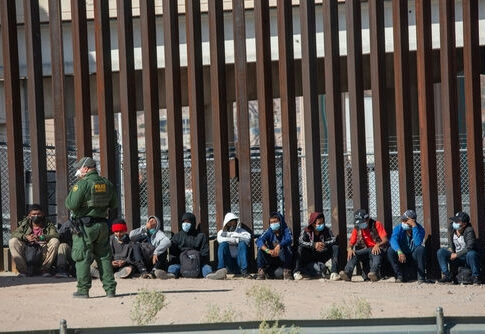For the first time in American history, the president has ordered a national census to exclude undocumented immigrants, igniting a constitutional clash that could redefine political power for a generation.
Trump’s Census Directive Marks Historic Shift in Apportionment Strategy
On August 7, 2025, President Donald Trump announced that the Department of Commerce would prepare a new, “highly accurate” national census, explicitly directing officials to exclude undocumented immigrants from the official count. This marks the first time a U.S. president has taken steps to depart from the constitutional norm of counting all residents—citizens and non-citizens alike—for apportionment and federal funding. Trump’s administration frames the move as a necessary correction to what Republicans view as unfair dilution of citizen representation, especially in states with large undocumented populations.
The timing of this announcement comes amid heated redistricting battles, particularly in Texas, where both parties are fiercely maneuvering for control of congressional maps. Trump’s directive is positioned as a direct response to recent election data and ongoing concerns among conservatives about the political influence of non-citizen populations. Republican leaders have openly supported the measure, arguing that only legal residents should determine congressional representation, while Democrats and left-leaning advocacy groups have condemned the move as unconstitutional and discriminatory against immigrant-heavy communities.
Constitutional Debate and Legal Showdown Anticipated
The U.S. Constitution requires a decennial census to count the “whole number of persons in each State,” a mandate that, until now, has always included undocumented immigrants. Legal experts, historians, and the U.S. Census Bureau have all affirmed that this practice has remained unchanged since 1790. Trump’s order is expected to trigger a wave of lawsuits, with state governments such as California and New York, as well as immigrant advocacy organizations, preparing immediate legal challenges. The courts will be asked to decide whether the executive branch can unilaterally alter the foundational process that determines federal representation and funding.
This legal standoff is set against a backdrop of heightened polarization and partisan gridlock, with Democrats viewing the move as an attack on representation for diverse, urban, and immigrant-rich communities. At the same time, many conservatives see the directive as a long-overdue step to restore integrity and fairness to the apportionment process, ensuring that political power is reserved for citizens and lawful residents.
Ramifications for Political Power and Federal Funding
If implemented, excluding undocumented immigrants from the census could significantly alter the distribution of congressional seats and billions of dollars in federal aid. States with large immigrant populations—such as California, Texas, New York, and Florida—stand to lose representation and resources, while states with smaller undocumented populations could see their influence grow. This would reshape the political landscape for at least the next decade, affecting not just elections but also the allocation of funds for healthcare, education, infrastructure, and social services.
Beyond the immediate legal and political implications, the directive is likely to have a chilling effect on census participation among immigrant communities, regardless of status. Experts warn that undercounting populations will undermine the accuracy and legitimacy of the census, disrupt resource planning, and erode public trust in government data collection. Despite these risks, the Trump administration and its supporters contend that excluding undocumented immigrants is essential to protecting the constitutional rights and voices of American citizens.
Partisan Redistricting Battles and National Fallout
The census directive intensifies ongoing redistricting conflicts, most notably in Texas, where Democrats have fled the state to block passage of a Republican-drawn map. In response, GOP governors are pursuing legal action, and other states are considering countermeasures such as aggressive gerrymandering. Political strategists on both sides acknowledge that the outcome of these battles will determine the balance of power in Congress for years to come, heightening the stakes of Trump’s unprecedented order. As lawsuits mount and the Department of Commerce begins preparations, the nation braces for a defining constitutional test over who counts—and who gets counted—in American democracy.
Trump Orders New Highly Accurate Census Excluding Illegals!Only the number of CITIZENS should be used to determine allocation of US Congressional Districts . Non-citizens don’t have full Constitutional rights to representation.That Right is for CITIZENS .https://t.co/DsyC3Fp7ag
— Annie Pistol Packin Oakley (@AnneRifleOakley) August 7, 2025
While the courts weigh the legality of Trump’s directive, Americans across the political spectrum are left grappling with fundamental questions about representation, fairness, and the true meaning of the census. For conservatives, the move represents a bold defense of constitutional principles and a rejection of “woke” manipulation of the nation’s most critical data. For opponents, it is a dangerous overreach threatening the rights of millions and the integrity of the republic itself.
Sources:
TIME: Trump Orders New Census Excluding Undocumented Immigrants
ABC News: Trump orders new census excluding undocumented immigrants amid redistricting battles
NPR/WGBH: Trump calls for U.S. census to exclude, for the first time, people with no legal status


